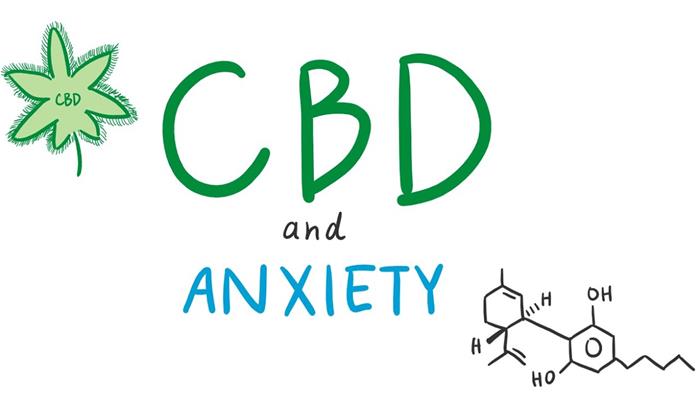Anxiety is a ubiquitous companion to many, casting a shadow on daily life and impacting mental health in profound ways. In this comprehensive blog post, we embark on a journey to unravel the intricate layers of anxiety, delving into its diverse symptoms, root causes, and the profound toll it exacts on mental well-being.
Symptoms of Anxiety: Recognizing the Invisible Struggles
Anxiety doesn't always announce its presence with grand gestures; often, it manifests in subtle yet insidious ways. From the persistent worry that clouds one's thoughts to the racing heartbeat and shortness of breath during a panic attack, the symptoms of anxiety are as varied as the individuals who experience them. Recognizing these signs is the crucial first step towards understanding the impact anxiety can have on one's mental and emotional state.
The Many Faces of Anxiety: Generalised, Social, and Panic Disorders
Anxiety is not a one-size-fits-all condition. Part of its complexity lies in the array of forms it takes. Generalized Anxiety Disorder (GAD), Social Anxiety Disorder, and Panic Disorders represent just a few facets of this intricate mental health challenge. Each form comes with its unique set of symptoms, triggers, and challenges, necessitating tailored approaches to diagnosis and treatment.
Root Causes: Unraveling the Complex Web
The roots of anxiety are often entangled in a complex web of biological, environmental, and psychological factors. Genetic predispositions, traumatic experiences, chronic stress, and even imbalances in neurotransmitters can contribute to the development of anxiety disorders. Understanding these root causes provides insight into the multifaceted nature of anxiety and opens avenues for more targeted interventions.
The Ripple Effect: Impact on Mental Health and Daily Life
Beyond the immediate symptoms, anxiety casts a ripple effect that extends into various aspects of an individual's life. From strained relationships to impaired work performance and hindered daily functioning, the consequences of anxiety reverberate throughout one's mental health landscape. This section explores how untreated or undermanaged anxiety can lead to a cascade of challenges, emphasizing the urgency of effective intervention.
Nurturing Tranquility – The Science Behind CBD and Anxiety Relief
As anxiety continues to be a prevalent challenge for many, the search for effective and holistic remedies intensifies. Part two of our exploration into anxiety relief focuses on the fascinating realm of cannabidiol (CBD) and its potential to act as a natural remedy. Let's delve into the intricate science behind how CBD interacts with the human body, particularly the endocannabinoid system, shedding light on its promising role in alleviating anxiety.
The Endocannabinoid System: A Symphony of Balance
At the heart of understanding CBD's potential lies the endocannabinoid system (ECS), a complex network of receptors, endocannabinoids (naturally occurring compounds in the body), and enzymes. This system plays a pivotal role in regulating various physiological processes, including mood, stress response, and immune function. When the balance within the ECS is disrupted, it can contribute to the manifestation of anxiety and other mental health conditions.
CBD and Neurotransmitter Regulation: Balancing the Brain Chemistry
One of the key ways CBD may impact anxiety is through its interaction with neurotransmitters, the chemical messengers in the brain. Research suggests that CBD may influence serotonin levels, a neurotransmitter associated with mood regulation. By modulating serotonin receptors, CBD could potentially contribute to a more balanced and stabilized mood, offering relief from the intense emotional states characteristic of anxiety disorders.
Reduction of Neuroinflammation: Calming the Storm
Neuroinflammation, or inflammation in the brain, has been linked to various mental health conditions, including anxiety. CBD has demonstrated anti-inflammatory properties, and studies indicate that it may help reduce neuroinflammation. By calming this inflammatory response, CBD could contribute to a more serene neurological environment, potentially mitigating anxiety symptoms.
GABAergic System Modulation: Unveiling the Calming Effect
The gamma-aminobutyric acid (GABA) system is another critical player in anxiety regulation. GABA is an inhibitory neurotransmitter that promotes relaxation and dampens excessive neural activity. CBD appears to influence the GABAergic system by increasing the availability of GABA in the brain. This modulation can have a calming effect on overactive neural pathways, potentially providing relief from the hyperactivity associated with anxiety.
Neurogenesis: Building Resilience in the Brain
Chronic stress and anxiety can have detrimental effects on the brain's structure, particularly in areas associated with emotional regulation and memory. Some studies suggest that CBD may promote neurogenesis, the formation of new neurons. This process could enhance the brain's resilience, potentially reversing the structural changes induced by chronic anxiety and stress.
Navigating the Research Landscape - CBD's Impact on Anxiety
In the quest for effective anxiety relief, scientific exploration becomes a guiding beacon. Part three of our journey into CBD's potential as a natural remedy for anxiety dives into the extensive realm of research. We'll explore key studies that investigate how CBD interacts with anxiety disorders, shedding light on the evidence supporting its role in promoting mental well-being.
The Neurotransmitter Connection: Serotonin and Beyond
Research examining the relationship between CBD and neurotransmitters reveals intriguing insights into its potential anxiety-alleviating effects. Studies suggest that CBD may impact serotonin receptors, influencing the regulation of mood and emotions. By modulating serotonin levels, CBD could offer a natural pathway to counteract imbalances associated with anxiety disorders.
Physiological Responses to Stress: CBD's Calming Touch
Stress is a common trigger for anxiety, and understanding how CBD affects the body's physiological responses to stress is crucial. Research indicates that CBD may have a calming influence on the cardiovascular and nervous systems during stress-inducing situations. This calming touch extends beyond emotional well-being, potentially providing relief from the physical symptoms often associated with anxiety.
Fear Extinction and Memory Reconsolidation: Rewiring Neural Pathways
Anxiety often involves heightened responses to fear and an overactive fear memory. Research on fear extinction and memory reconsolidation suggests that CBD may play a role in reshaping these neural pathways. By facilitating the extinction of fear responses and altering the reconsolidation of traumatic memories, CBD could offer a unique approach to mitigating anxiety-related behaviors.
Social Anxiety: CBD's Potential to Ease Social Challenges
Social anxiety is a specific form of anxiety that revolves around social interactions. Preliminary studies propose that CBD may hold promise in alleviating social anxiety symptoms. By modulating neural activity in regions associated with social anxiety, CBD could potentially ease the discomfort and fear experienced in social situations, fostering a more relaxed and confident demeanor.
Sleep Quality and Anxiety: Finding Tranquility in Rest
The intricate relationship between anxiety and sleep quality has been a subject of extensive research. CBD's potential to improve sleep quality is of particular interest, as adequate rest is crucial for mental health. Studies suggest that CBD may influence sleep patterns, helping individuals achieve more restful sleep and, consequently, reducing anxiety symptoms associated with sleep disturbances.
Now, As we continue our exploration into the realm of CBD and anxiety, part four will shift focus to practical considerations. We'll provide insights on incorporating CBD into daily routines, optimal dosages, and the importance of consulting healthcare professionals for personalized guidance on the journey towards tranquility.
Embracing Tranquility - Practical Considerations for Incorporating CBD into Anxiety Management
As our exploration into the potential of CBD for anxiety relief unfolds, the practical aspects of integrating this natural remedy into one's daily life become essential. In part four, we shift our focus to actionable insights, offering guidance on how to incorporate CBD into your anxiety management toolkit.
Dosage Considerations: Start Low and Go Slow
Determining the right dosage of CBD is a crucial aspect of effective anxiety management. It's advisable to start with a low dosage and gradually increase it based on your body's response. Every individual is unique, and factors such as body weight, metabolism, and the severity of anxiety symptoms can influence the ideal dosage. Consulting with a healthcare professional can provide personalized guidance on finding the optimal CBD dosage for your specific needs.
Delivery Methods: Exploring Options for Individual Preferences
CBD comes in various forms, each catering to different preferences and lifestyles. Common delivery methods include CBD oil tinctures, capsules, edibles (such as gummies), and topical creams. The choice of delivery method depends on factors like desired onset time, convenience, and personal preferences regarding taste and application. Experimenting with different forms can help you discover what works best for you.
Consistency is Key: Establishing a Routine
To reap the potential benefits of CBD for anxiety relief, consistency is paramount. Incorporate CBD into your daily routine at the same time each day to maintain a steady level of the compound in your system. Consistency not only enhances the effectiveness of CBD but also provides a structured approach to managing anxiety symptoms over time.
Holistic Lifestyle Considerations: Beyond CBD
While CBD holds promise as a natural remedy, it's essential to view it as part of a broader anxiety management strategy. Adopting a holistic approach involves considering lifestyle factors that contribute to mental well-being. Regular exercise, sufficient sleep, stress management techniques, and a balanced diet complement the potential benefits of CBD, creating a comprehensive foundation for anxiety relief.
Consultation with Healthcare Professionals: Informed Decision-Making
Before incorporating CBD into your anxiety management plan, consulting with a healthcare professional is crucial. They can provide personalized advice based on your medical history, current medications, and individual health needs. Healthcare professionals can offer valuable insights into potential interactions between CBD and existing treatments, ensuring a safe and informed approach to anxiety relief.
Conclusion: A Journey towards Balance and Tranquility
In conclusion, embracing CBD as a tool for anxiety management involves thoughtful consideration and a holistic approach. Finding the right dosage, exploring suitable delivery methods, establishing a consistent routine, and integrating CBD into a broader lifestyle strategy are pivotal steps toward achieving balance and tranquility.
Remember, the journey towards anxiety relief is unique for each individual. By combining the potential benefits of CBD with informed decision-making and professional guidance, you can navigate this path with confidence, embracing the prospect of a calmer and more serene tomorrow.

